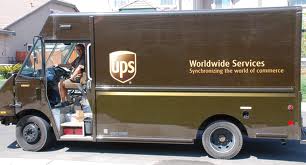By Brian O'Connell
It's one thing when environmental advocates say that natural gas is better than regular gasoline. It's another thing when chief executive officers at transportation and trucking industry companies say the same thing.
But that's exactly what's happening with liquefied natural gas (LNG), which is cheaper than regular gasoline by $1.50 per gallon. Here's how United Parcel Service (NYSE: UPS) explains plans to purchase 700 new LNG tractors, and open four new LNG filling stations by 2014:
UPS is isn't alone. According to Pike Research, commercial vehicles running on natural gas instead of oil should reach one million in annual US sales by 2019. There's plenty of money to be made in that market, Pike says.
"Natural gas vehicles emit substantially lower levels of GHGs [greenhouse gasses], particulate matter, and nitrogen oxide than either gasoline- or diesel-powered trucks and buses," writes senior research analyst Dave Hurst. "What's more, compared [with] diesel engines, natural gas provides a financial benefit. In most cases, the higher incremental cost of a natural gas vehicle is typically recovered, due to lower fuel costs, within two to seven years."
Enter Clean Energy Fuels (Nasdaq: CLNE)
CLNE is the largest provider of natural gas fuel for transportation in North America and a global leader in the expanding natural gas vehicle fueling market. The company, founded by oil billionaire T. Boone Pickens, has tapped into the transportation industry's insatiable desire for cheaper alternative fuels. (After buying out Chesapeake Energy's (NYSE: CHK) stake in Clean Energy Fuels in June, Pickens now owns 22 million shares, or about 25 percent of the company.)
Clean Energy caters to customers like third-party logistics shipper Saddle Creek, which last year inked a 10-year deal with CLNE to install compressed natural gas (CNG) filling stations at some of its 29 US locations. In all, the Seal Beach, Calif.-based Clean Energy fuels 30,600 vehicles belonging to more than 650 fleet customers at its 348 US locations.
CLNE shares are currently trading near the midpoint of their 52-week trading. Last week, CEO Andrew Littlefair bought 127,000 shares for $1.6 million. This week, Clean Energy announced a major partnership with General Electric (NYSE: GE) to build LNG facilities across the US. The company is forecasting a 23 percent sales increase to more than $400 million this year. Clean Energy is the prime mover in the growing natural gas fueling market, and the stock is poised to keep motoring higher.
Brian O'Connell is an investment analyst at Investing Daily. He has frequently appeared as an expert financial commentator on CNN, NPR, Fox News, Bloomberg, CNBC, C-Span, CBS Radio, and many other media broadcast outlets.
It's one thing when environmental advocates say that natural gas is better than regular gasoline. It's another thing when chief executive officers at transportation and trucking industry companies say the same thing.
But that's exactly what's happening with liquefied natural gas (LNG), which is cheaper than regular gasoline by $1.50 per gallon. Here's how United Parcel Service (NYSE: UPS) explains plans to purchase 700 new LNG tractors, and open four new LNG filling stations by 2014:
- Lower fuel prices compared to imported petroleum (30 percent to 40 percent lower today)
- 25 percent lower CO2 emissions (US Energy Information Administration)
- Growing domestic supply, insulated from market volatility
- LNG does not compromise tractor's abilities, fuel economy or drivability, and significantly reduces greenhouse gases
- LNG tractors have a 600-mile range and no route limitations
- Viability of LNG as a "bridge” fuel toward energy independence from fossil fuels for heavyweight trucks
UPS is isn't alone. According to Pike Research, commercial vehicles running on natural gas instead of oil should reach one million in annual US sales by 2019. There's plenty of money to be made in that market, Pike says.
"Natural gas vehicles emit substantially lower levels of GHGs [greenhouse gasses], particulate matter, and nitrogen oxide than either gasoline- or diesel-powered trucks and buses," writes senior research analyst Dave Hurst. "What's more, compared [with] diesel engines, natural gas provides a financial benefit. In most cases, the higher incremental cost of a natural gas vehicle is typically recovered, due to lower fuel costs, within two to seven years."
Enter Clean Energy Fuels (Nasdaq: CLNE)
CLNE is the largest provider of natural gas fuel for transportation in North America and a global leader in the expanding natural gas vehicle fueling market. The company, founded by oil billionaire T. Boone Pickens, has tapped into the transportation industry's insatiable desire for cheaper alternative fuels. (After buying out Chesapeake Energy's (NYSE: CHK) stake in Clean Energy Fuels in June, Pickens now owns 22 million shares, or about 25 percent of the company.)
Clean Energy caters to customers like third-party logistics shipper Saddle Creek, which last year inked a 10-year deal with CLNE to install compressed natural gas (CNG) filling stations at some of its 29 US locations. In all, the Seal Beach, Calif.-based Clean Energy fuels 30,600 vehicles belonging to more than 650 fleet customers at its 348 US locations.
CLNE shares are currently trading near the midpoint of their 52-week trading. Last week, CEO Andrew Littlefair bought 127,000 shares for $1.6 million. This week, Clean Energy announced a major partnership with General Electric (NYSE: GE) to build LNG facilities across the US. The company is forecasting a 23 percent sales increase to more than $400 million this year. Clean Energy is the prime mover in the growing natural gas fueling market, and the stock is poised to keep motoring higher.
Brian O'Connell is an investment analyst at Investing Daily. He has frequently appeared as an expert financial commentator on CNN, NPR, Fox News, Bloomberg, CNBC, C-Span, CBS Radio, and many other media broadcast outlets.

 RSS Feed
RSS Feed
